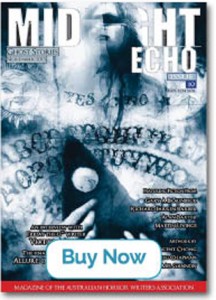As some of you may know, I recently judged the Australian Horror Writers’ Association’s short story and flash fiction competition. It involved reading 154 stories and over 385,000 words. At 12pt Times New Roman font, spaced at 1.5 lines, that was 1,066 pages of writing. Whoa!
I’m so glad I read it all though – thank you for sending in your wonderful stories, everyone! It was a fabulous experience. So fabulous, in fact, that I asked my writers’ group – the amazing Northern Beaches Writers’ Group – what insights they might like to have into the judging process, what might be useful to know when writing to win. I’ve answered their questions below. Hopefully you know all this already, but if you don’t then I hope it helps in some small way.
What do judges look for in a story?
The most important thing to realise about competitions, and slush piles, and submission calls, is that the reader reading them has a heck of a lot of reading to do. They are also, generally, reading in their spare time. So sometimes I would sit down with my laptop and a glass of wine at home, and have 30 stories to read but only an hour in which to read them.
I never managed it. 10 stories per hour was my maximum. Still, in that hour I wanted to read as much as possible. Some stories made this easy for me – they flowed well, had an interesting character doing something interesting, and showed me the action happening scene-by-scene, so I thanked them for it with my scoring. Other stories made the hour hard work, with their telling and info-dumping and my struggling to understand what was going on, and they were also scored accordingly.
So I looked forward to finding the easy stories, the ones that simply stole time from me, such that when I looked up the sky was darker and my hour mostly gone. Those stories had plots I hadn’t read before, characters I’d never met, and made me think too. Of those stories, some then stuck in my mind longer than others, and they got extra marks. A totally new type of antagonist or apocalypse, for example, was likely to stay in my memory longer than one I’d read/seen before, even if a writer had a fresh perspective.
Are judges influenced by their own preferences?
Yes and no.
No because I have a strong preference for first person writing and often select my for-pleasure reading on that basis, yet this preference didn’t influence my marking at all. So the winner of the 2014 AHWA flash fiction competition is written in third person.
Yes because I like plot-driven stories with unique characters who exist in an interesting place with a problem that must be solved. If nothing really happens in a story, then it’s not really for me. I like to be compelled to keep reading, not just curious, and this preference undoubtedly influenced my marking when it came to the higher scores. If a story succeeded on all its basic levels, and all its higher levels, of course my personal preference gave it extra marks! For the AHWA competition though, there were two other judges who did the same, so the ultimate winners were those whose stories appealed to us all – a high achievement indeed.
What let stories down?
A series of events does not make a story.
- If a character has no problem to solve, be it how to save the world or where to next get a drink, then they are a passive player in that story and probably shouldn’t be its main character.
- If a character’s problem isn’t personally important to them, then a reader is going to struggle to care about that problem.
- If the character is simply observing what another character does or doesn’t do, then perhaps they’re not the right person to tell your story?
A lot of well-written stories failed to recognise this and/or deal with it on page one. Predictability, too much telling, too many seen-before characters, cliché, false suspense, and a general lack of originality also let otherwise well-told stories down.
What really turned you off as a reader?
Stories that were hard to understand, both due to the way they were written and worldbuilding issues; and stories that were little more than a recount of an already well-known tale. So if I knew how a story would end just from reading the first paragraph, it wasn’t going to be a winner. And if I enjoyed a story until I got to the end, but then didn’t really understand what had happened to reach that ending, that wasn’t going to be a winner either.
Oh, and suspension of disbelief too. If a character does something that no one I know would ever do, the story wasn’t going to work for me.
What prevailed – ideas or polish?
The best stories were of course those that had both polish and great ideas. At the lower end of the scale were those that had neither. In the middle were those stories that had one or the other, but not both. That said, those stories with a good idea but that were hard to read tended to get a lower score than those not-so-good ideas that were well told. If a story is hard to read, it loses readers, it loses me.
Were there a lot of first drafts?
Everyone had polished to some degree, but not everyone’s writing skills were at the same level. Some entrants could have benefitted from doing a creative writing course that covered the basics, just in case they were missing an essential writing tool.
When did you give up?
I never gave up and always read to the last sentence, because I knew how much time and effort everyone had put in and wanted to give every story its best chance.
Okay then, when did you know a story wasn’t a winner?
Sometimes I could tell from the first paragraph that it wasn’t going to be a winner, other times I knew towards the end of the first page or the beginning of the second page. Really by this time your character’s main problem should be set up and something should be happening. If this isn’t the case, it isn’t going to be able to compete against those stories that do.
I would still keep reading though, until I reached the end – but I was never wrong about that initial assessment.
Which characters were the best?
The active ones – those trying to steer their fate towards better times rather than just passively accepting what happens.
Did a sense of place matter to you?
Of course. In flash fiction, a sense of place is difficult to establish because you’ve only got a short word count, so the best flash fiction used typical scenes and places as their settings. In the longer stories there was greater opportunity to establish place, but I was happy as long as there was enough to ground me in a place, so I knew where the action was about to take place, then I wanted the story to get moving… There’s time later to expand on a sense of place once something’s happening, but unless something happens soonish, a reader might stop reading.
Were there any other considerations that affected your judgment?
Only that the ultimate winners would be published in Midnight Echo, and that I would be one of the judges who put them there. That’s a huge responsibility and I wanted to treat it with the respect it deserved. I hope I did a good job! Let me know once the edition is out?
In the meantime, a huge congratulations to the winners (see below), thank you to the other judges Talie Helene and Paul Mannering for making the experience so much fun, and a big thank you to the competition’s submissions wrangler Martin Livings, who did such a good job of processing each of the 154 entries.
There’s even some interesting statistics about the competition here.
And the winner is…
Look these guys up, everyone – they’re all really great storytellers!
Short Story Winner – “Sundown” by Keith Williams
Honourable Mentions:
“A Simple Road Relocation” by Bruce Graham
“Glow” by Natalie J E Potts
Flash Fiction Winner – “What Came Through” by Stuart Olver
Honourable Mentions:
“The Heat of the Moment” by Pete Kempshall
“Homecoming” by Anthony Ferguson
“The AVM Initiative” by Rebecca Fraser










Zena, this is a splendid summary of the issues that go into judging. All the points you raise I grapple with as I read the stories submitted to the Stringybark competitions.
One additional point is that I find I become rather sceptical about a story when it contains more than 3-4 grammatical, punctuation or spelling errors. I then struggle to read the story neutrally as it seems to me that if the writer didn’t take the time to know the very basics of the craft then why should I spend my time reading their story? I still do, because I respect that they think their work is good enough for submission, but it does tell in the scoring. How did you handle these basic errors?
Oh and do you want to be a judge on a Stringybark comp? : )
Thanks, David!
I found that those stories with lots of errors also lacked in some other aspect of storytelling, so they scored lower regardless. But if a story was otherwise well-written, it was easy to forgive the odd mistake – I was too engrossed in the story! Of course the winners had great storytelling AND few errors, because they’d polished their stories to such a high degree.
And yes, I’d love to judge a Stringybark comp. Let’s chat offline about that. Send me an email! 🙂